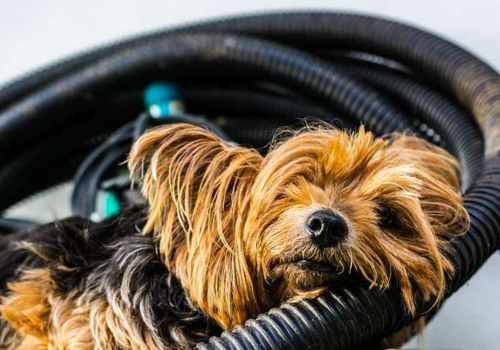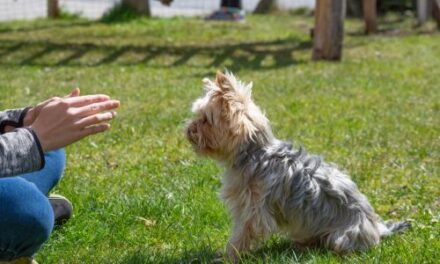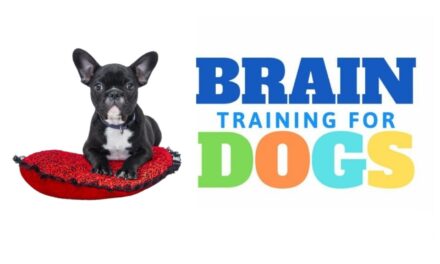Do dogs like car washes? Car washes are a common, yet intriguing, experience for most drivers. The question of whether dogs actually enjoy car washes has been a topic of curiosity among pet owners and enthusiasts alike. In this article, we will explore the possible reasons why some dogs may find car washes enjoyable and how this experience can potentially enhance their overall well-being.
Key Takeaways
- Dogs experience sensory overload during car washes due to the intense sights, sounds, and sensations.
- Anxiety and fear can affect a dog’s car wash experience, and signs of distress should be observed and managed.
- Understanding a dog’s individual preference for water and bathing is essential for a positive car wash experience.
- Canine sensitivity to sensory stimuli, conditioning, and personality play crucial roles in car wash experiences.
- Gradual exposure, positive reinforcement, and familiarity are key strategies for making car washes enjoyable.
- Safety and caution should always be a priority when taking dogs for car washes.
- Individual dog preferences vary, and a personalized approach is necessary for a positive experience.
The Car Wash Experience for Dogs
When it comes to car washes, we often think of it as a chore or a necessary task to keep our vehicles clean. But have you ever wondered what the experience is like for our furry friends? Dogs, like humans, have their own unique sensory experiences when they find themselves in a car wash environment. In this article, we will delve into the world of car washes from a canine perspective, exploring the sensory stimulation, anxiety, and fear factors, and the role of water and bathing in the car wash experience for dogs.
Sensory Stimulation
A car wash can be a sensory overload for dogs. The sights, sounds, and sensations they encounter during the process can be overwhelming, especially because they are not accustomed to such an environment. The combination of bright lights, moving brushes, and splashing water can trigger various reactions in dogs, ranging from curiosity to anxiety. Understanding the impact of sensory stimulation is crucial in assessing a dog’s experience in a car wash.
Anxiety and Fear
Just like humans, dogs can experience anxiety and fear when faced with unfamiliar situations, and the car wash environment is no exception. The high noise levels, confined spaces, and sudden movements can be intimidating for dogs, leading to a heightened state of anxiety. It is important for dog owners to be observant of their pet’s behavior and body language during a car wash, as signs of distress can manifest in different ways.
Water and Bathing
Water and bathing are integral components of the car wash process, and they can have a significant impact on a dog’s experience. While some dogs enjoy water and find bathing to be a pleasurable experience, others may have a deep aversion to it. Understanding a dog’s individual preference towards water and bathing is key in ensuring a positive car wash experience for our furry companions.
The Behavioral Science Behind Dogs and Car Washes
To truly understand the car wash experience for dogs, it is important to delve into the behavioral science underlying their responses. This section explores the canine sensitivity to sensory stimuli, the role of conditioning and associative learning, and the individual differences in preference when it comes to car washes.
Canine Sensitivity to Sensory Stimuli
Dogs possess a remarkable sensory system that allows them to perceive the world around them in a unique way. Their acute senses of hearing, sight, and touch make them susceptible to even subtle changes in their environment. In a car wash setting, dogs may experience sensory overload due to the intense and unfamiliar stimuli. It is crucial for dog owners to recognize and manage their pet’s sensitivity to sensory stimuli during a car wash.
Conditioning and Associative Learning
The process of conditioning and associative learning plays a vital role in a dog’s response to car washes. Through repeated exposure and positive reinforcement, dogs can learn to associate the car wash environment with a positive experience. However, negative or traumatic experiences can also shape their perceptions and create an aversion towards car washes. Understanding the principles of conditioning and associative learning can help dog owners create a more enjoyable car wash experience for their furry friends.
Individual Differences in Preference
Just like humans, dogs have their own unique personalities and preferences. Some dogs may thoroughly enjoy the car wash experience, while others may feel extremely uncomfortable or fearful. Factors such as breed, temperament, and previous experiences can influence an individual dog’s preference towards car washes. Recognizing and respecting these individual differences is crucial in tailoring the car wash experience to suit each dog’s needs and preferences.

Signs of Enjoyment or Discomfort in Dogs
While dogs cannot directly communicate their thoughts and feelings about a car wash experience, they do express their emotions through various signals and behaviors. Understanding these signs is vital in determining whether a dog is enjoying or experiencing discomfort during a car wash. This section explores the body language and expressions, vocalizations and sounds, and response to specific car wash features that can indicate a dog’s emotional state.
Body Language and Expressions
A dog’s body language and facial expressions can provide valuable insight into their emotional state during a car wash. Signs of enjoyment may include a relaxed body posture, wagging tail, and soft facial expressions. Conversely, a dog experiencing discomfort may exhibit signs such as tense muscles, pinned back ears, and a tucked tail. By closely observing a dog’s body language, owners can gauge their pet’s level of comfort in a car wash environment.
Vocalizations and Sounds
Vocalizations and sounds can also offer clues about a dog’s emotional state in a car wash. Some dogs may vocalize their excitement or enjoyment through barks or happy whines, while others may express distress or fear through growling or whimpering. Understanding the different vocalizations and sounds that dogs may produce can help owners interpret their pet’s emotions during a car wash.
Response to Specific Car Wash Features
Different dogs may have unique responses to specific features of a car wash. For example, some dogs may enjoy the gentle spray of water, while others may find it intimidating. Similarly, the movement of brushes or the sound of air dryers may elicit different reactions in dogs. By paying attention to how a dog responds to specific car wash features, owners can better understand their pet’s preferences and tailor the experience accordingly.
Factors Influencing a Dog’s Car Wash Experience
Several factors can significantly influence a dog’s car wash experience. This section delves into the role of previous experiences and exposure, temperament, and personality, as well as training and socialization in shaping a dog’s perception of car washes.
Previous Experiences and Exposure
A dog’s previous experiences and exposure to car washes can greatly impact their current and future perceptions. If a dog had a negative encounter or traumatic experience during a car wash, they are more likely to develop fear or aversion towards similar environments. On the other hand, positive experiences can create a sense of familiarity and comfort. Understanding a dog’s past experiences and providing appropriate support can help overcome any negative associations and make car washes more enjoyable.
Temperament and Personality
Each dog has a unique temperament and personality, which can significantly influence their response to a car wash. Some dogs may have a naturally curious and outgoing personality, making them more inclined to enjoy novel experiences like car washes. Other dogs may be more reserved or anxious by nature, finding the car wash environment overwhelming. Recognizing the individual temperament and personality traits of a dog can aid in providing a personalized and positive car wash experience.
Training and Socialization
The level of training and socialization a dog has undergone can also impact their car wash experience. Dogs who have received proper training and socialization are more likely to be comfortable and confident in new environments. Basic obedience commands, such as “sit” or “stay,” can be particularly helpful in managing a dog’s behavior during a car wash. Adequate training and socialization contribute to a dog’s overall confidence and can help mitigate anxiety or fear in a car wash setting.
Alternatives to Traditional Car Washes for Dogs
For dog owners who are concerned about their pet’s comfort or have difficulty taking them to traditional car washes, there are alternative options available. This section explores self-service pet wash facilities, grooming salons with car wash chutes, and in-home DIY dog washing as alternatives to traditional car washes.
Self-Service Pet Wash Facilities
Self-service pet wash facilities provide a convenient and controlled environment for dog owners to wash their pets. These facilities typically offer professional-grade bathing equipment, such as elevated tubs, adjustable sprayers, and pet-friendly shampoos. With the ability to control the environment and water temperature, self-service pet wash facilities can be a less overwhelming option for dogs who are sensitive to the traditional car wash environment.
Grooming Salons with Car Wash Chutes
Certain grooming salons offer unique car wash chutes specifically designed for dogs. These chutes allow dogs to walk or be gently guided through a specialized washing system, replicating the car wash experience without the potentially overwhelming aspects. Grooming professionals are present throughout the process, ensuring the dog’s safety and comfort. Grooming salons with car wash chutes can be a suitable choice for owners who want to prioritize their pet’s well-being during a car wash.
In-Home DIY Dog Washing
For dog owners who prefer the comfort and familiarity of their own home, DIY dog washing is an option worth considering. By investing in a portable dog bathing system or using a designated bathing area, owners can recreate a car wash experience tailored to their pet’s needs. This allows for gradual exposure and a more controlled environment, reducing the chances of anxiety or fear. In-home DIY dog washing can be a cost-effective and convenient alternative to traditional car washes.

Tips for Making Car Washes Enjoyable for Dogs
While car washes can be challenging for dogs, there are several strategies that owners can employ to ensure a more enjoyable experience. This section provides tips for gradual exposure and desensitization, positive reinforcement and rewards, as well as establishing familiarity and routine in relation to car washes.
Gradual Exposure and Desensitization
Introducing dogs to the car wash environment gradually and in a controlled manner can help them acclimatize and reduce anxiety. Start by exposing them to the sights and sounds from a distance and gradually move closer over time. Reward calm and relaxed behavior with treats or praise, gradually increasing the duration of exposure. By employing gradual exposure and desensitization techniques, owners can help their dogs build a positive association with car washes.
Positive Reinforcement and Rewards
Positive reinforcement is a powerful tool when it comes to shaping a dog’s behavior and emotional responses. When introducing a dog to a car wash or during the actual experience, reward calm and relaxed behavior with treats, praise, or their favorite toy. Offering rewards during and after the car wash can help create positive associations and make the experience more enjoyable for the dog. Consistency and patience are key in ensuring the effectiveness of positive reinforcement techniques.
Familiarity and Routine
Establishing a sense of familiarity and routine can provide dogs with a sense of security during a car wash. Creating a consistent car wash routine, using the same car wash facility, and familiarizing the dog with the process can help reduce fear or anxiety. Additionally, using cues or commands that the dog is familiar with during the car wash can reinforce their training and create a sense of familiarity. By incorporating familiarity and routine, owners can make car washes more predictable and less stressful for their dogs.
The Importance of Safety and Caution
While striving to provide an enjoyable car wash experience for dogs, ensuring their safety and well-being should always be of paramount importance. This section emphasizes health considerations, proper restraint, and containment, as well as avoiding overwhelming experiences to prioritize the safety of dogs during a car wash.
Health Considerations
Before taking a dog to a car wash, it is essential to consider their health and any specific needs they may have. Dogs with certain medical conditions or sensitivity to certain products may require special care. Consulting with a veterinarian or a professional groomer can ensure that a dog’s health needs are taken into account during a car wash. Regular grooming at home, including brushing and inspecting for any skin issues, can contribute to maintaining a dog’s overall health and well-being.
Proper Restraint and Containment
To ensure the safety of dogs during a car wash, proper restraint and containment measures should be implemented. Using a secure leash or harness can prevent a dog from escaping or becoming anxious. Additionally, placing dogs in a carrier or using a safety barrier can help create a more controlled environment. The goal is to minimize the chances of injury or escape, providing both the dog and the owner with peace of mind.
Avoiding Overwhelming Experiences
While some dogs may enjoy the excitement and stimulation of a car wash, others may find it overwhelming. It is crucial for dog owners to recognize their pet’s limits and avoid pushing them into uncomfortable situations. If a dog displays signs of distress or fear during a car wash, it may be necessary to explore alternative options or modify the experience to make it more manageable. Avoiding overwhelming experiences is essential in ensuring the psychological well-being of dogs.
Dog-Friendly Car Wash Options
| Type of Car Wash | Description |
|---|---|
| Self-Service Pet Wash | Professional-grade equipment in a controlled environment for a less overwhelming experience. |
| Grooming Salon Chutes | Specialized washing systems with grooming professionals ensuring safety and comfort. |
| In-Home DIY Dog Wash | Portable bathing systems or designated areas at home for a controlled and familiar setting. |
Understanding Individual Dog Preferences
Every dog is unique, and understanding their individual preferences is key in creating a positive car wash experience. This section explores the personalized approach needed to cater to the diverse needs and preferences of different dogs.
Personalized Approach
There is no one-size-fits-all approach when it comes to dogs and car washes. Each dog has their own personality, history, and preferences, which should be taken into consideration. By adopting a personalized approach, dog owners can tailor the car wash experience to optimize their pet’s enjoyment and reduce any potential stress or anxiety.
Evaluating Responses and Feedback
Regularly evaluating a dog’s responses and seeking their feedback is crucial in understanding their preferences. By closely observing their behavior, body language, and vocalizations during and after a car wash, owners can gather valuable information about their pet’s emotional state. Engaging in open and responsive communication with a dog can allow them to provide non-verbal feedback and indicate their comfort level.
Adapting Techniques and Environments
When it comes to dog car washes, adaptability is key. Every dog may require different techniques and adjustments to the environment to make the experience enjoyable. As an owner, being open to adapting techniques, using different products, or exploring alternative car wash options can help accommodate a dog’s individual preferences. Flexibility and a willingness to experiment are essential in optimizing a dog’s car wash experience.

Here are Other Posts You Might be interested in
- Why Does Dog Pee Kills Grass?
- How To Stop Jealousy In Dogs?
- Why Do Dogs Snore?
- Brain Training For Dogs – Behavior Training For Dogs
- Which Vegetables Can Dogs Eat?
Conclusion
The experience of a car wash for a dog can be a complex one, with sensory stimulation, anxiety, and individual preferences all playing a significant role. By understanding the behavioral science behind dogs and car washes, recognizing signs of enjoyment or discomfort, and adjusting techniques and environments, owners can create a positive car wash experience for their furry friends.
While alternatives to traditional car washes exist, the key lies in emphasizing safety, adhering to a personalized approach, and celebrating the unique preferences of each dog. With knowledge and compassion, car washes can become a more enjoyable adventure for our beloved canine companions.
Frequently Asked Questions (FAQs)
Are car washes safe for dogs?
Car washes can be safe for dogs when proper precautions are taken. It’s important to use secure restraints, monitor their behavior, and be prepared to adapt or stop the process if the dog shows signs of distress.
Can I wash my dog at home instead of taking them to a car wash?
Yes, you can wash your dog at home using a designated bathing area or portable dog bathing equipment. This allows for a controlled and familiar environment.
My dog seems to enjoy car washes, but my friend’s dog is terrified. Why the difference?
Dogs have individual personalities and past experiences that influence their reactions. Some dogs are more naturally adaptable, while others may have had negative encounters that make them fearful.
What are signs that my dog is anxious or uncomfortable during a car wash?
Signs of anxiety or discomfort may include trembling, whining, cowering, attempting to escape, or displaying tense body language. It’s crucial to watch for these signs and take action to soothe your dog if necessary.
Is it safe to take a puppy to a car wash?
Puppies may be more adaptable to new experiences, but it’s essential to ensure their safety and monitor their reactions closely. Gradual exposure and positive experiences can help puppies become more comfortable with car washes over time.




